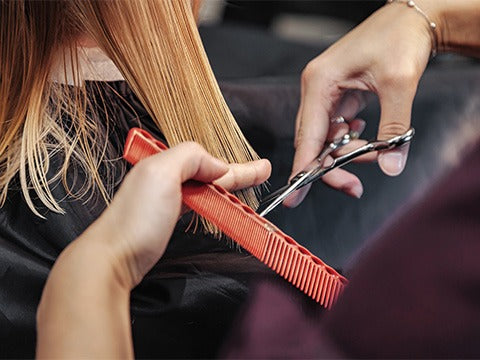We all know attractive hair accentuates our looks. People are desperate to have brilliant and lustrous hair. To accomplish their desire, they undergo chemical treatments like straightening and other hair treatments. Which can transform their hair’s texture and color but their hair also requires special attention to keep them healthy and beautiful. Does not matter whether you are a veteran or recently joined the world of chemical treatment, there is a guide for everyone.
What are chemically processed hairs?
Chemically treated hairs are those hairs that have been passed through a chemical treatment. These treatments can be harsh on hair sometimes. These hairs are a little bit difficult to deal with because the condition gets worse with the passage of time. We recommend avoiding a few hair treatments that can bring disaster to your hair like rebonding, straightening, and perms. Specifically perming and rebonding may be injurious due to its demand of overheat.
Side effects of chemical treatments:
Chemical treatments can cause damage to the hair if not done properly and if the hair is not properly cared for after the treatment. There are the following side effects of chemical treatments.
Dandruff and itchiness:
Chemical hair treatment can cause dandruff and itchiness. If the treatment disrupts the balance of natural oils, the scalp becomes dry. Dryness becomes a reason for dandruff and itchiness in the scalp.
Hair loss:
Some chemical treatments particularly those containing harsh chemicals or improper application of products can cause hair loss. Chemical treatments like perming and straightening can damage the follicles and feeble the hair strands.
Changes in hair texture:
Chemical treatments may change the texture of hair. Treatments like straightening and perming hair can alter the natural texture of the hair while making it dull and uneven.
Hair damage:
Chemical treatments such as rebonding and straightening can harm hair. These treatments become a cause of dryness, brittleness, split ends, and loss of elasticity of hair. These treatments can strip the natural oil and disrupt the PH level of the scalp.
How to manage chemically processed hair
We have recommendations that you can incorporate into your daily hair care routine. So you can embark on this journey with no apprehensive while enjoying healthier and more gorgeous hair together.
-
Use sulfate-free shampoo:
Use chemical and sulfate free shampoo on your chemically treated hair to maintain the color and stability of your hair. Because sulfate can strip out natural oils from the hair and make them dry and frizzy.
-
Keratin shampoo and conditioner:
If an individual gets a keratin treatment, add a deep conditioning product to his hair care routine to maintain his straightens. Use keratin complex shampoo and keratin complex conditioner which can help to extend the life of keratin treatment.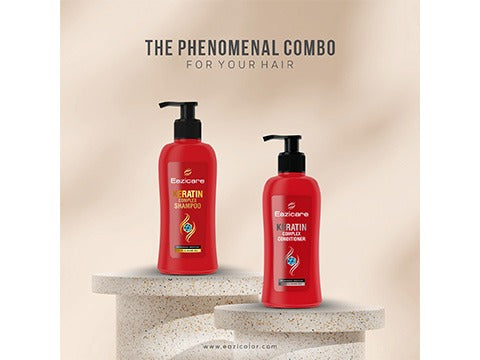
-
Plex treatment:
Plex treatment is an innovative Protein treatment for damaged hair. Other chemical treatments break the bonds and open the follicles of your hair. Plex treatment generates a fiber bond within the hair. It repairs and generates new sulfate bonds and also it is efficient for damaged, brittle, and chemically treated hair. Take this treatment at least once a month for smooth and glossy hair.
-
UV Protection:
Like your skin your hair needs SPF too. Prolonged sun exposure is vulnerable to your chemically treated hair. Use hair serum that has UV protection properties to retrain your hair treatment.
-
Keep your hair nourished:
After getting a chemical treatment, your hair needs extra attention and nourishment. To keep your hair nourished, add an Eazicare intensive deep repair hair mask to your hair care routine. It contains aloe Vera and Argon oil. Argon oil provides extra moisture and flexibility while Aloe Vera maintains the PH level. Apply a hair mask once or twice a week to sustain your hair’s moisture.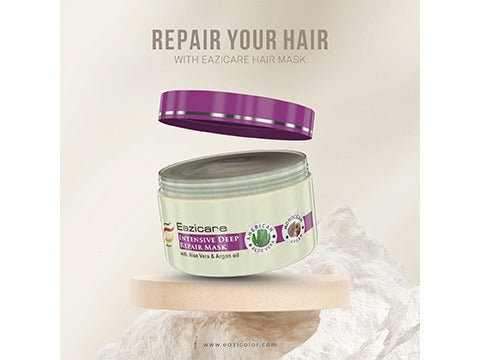
-
Drink water:
As we know water plays a mandatory role in your body. Drink at least 8 glasses of water a day. Water keeps our skin and scalp hydrated. This can prevent your scalp from dandruff and dryness.
-
Healthy diet:
Maintaining a healthy diet helps to support the vitality of chemically treated hair. Focus on foods rich in protein, minerals, and vitamins such as fruits, vegetables, and meat.
-
Avoid hot showers:
Everyone feels comfortable in hot water. But hot water dissipates natural oils from your scalp. Wash your hair with lukewarm water to maintain the integrity of your chemically treated hair.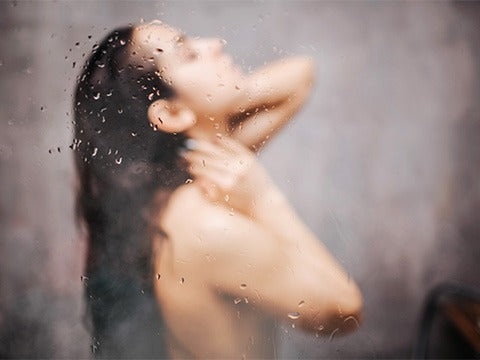
-
Night protection:
Like your skin, your hair also requires a night care routine. Use a satin or silk pillowcase and for extra care, you can wear a silk hair cap. It reduces friction and prevents breakage while retraining the smoothness of your chemically treated hair. Sleeping in bad postures can cause more damage than you think. It is considered as a bad hair habbit that you should avoid.
-
Diminishes heat styling tools:
Minimize the use of heat styling tools. Constant use of styling tools makes your hair fragile and leads to breakage. Use heat protection products like hair serum for your chemically treated hair to protect it from the deterioration of heat. if you have damaged your hair with the excessive heat, you should read about how to take care of heat damaged hair.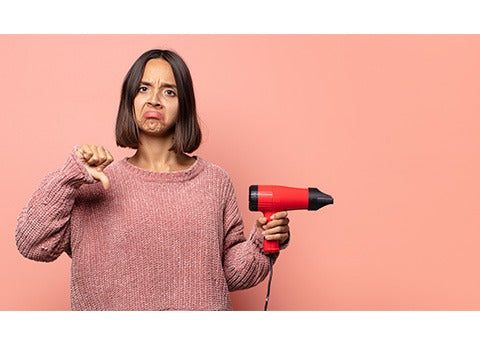
-
Avoid over-washing:
Avoid excessively washing your hair. Because over-washing can split away natural oils and moisture while making them dry. Wash your hair 2-3 times a week according to your hair needs. Use a mild, sulfate-free shampoo and hydrating conditioner to maintain the health and vibrancy of your chemically treated hair.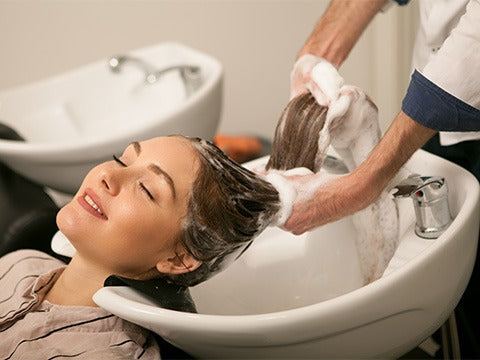
-
Trim regularly:
Regular trims are essential for chemically treated hair. They aid in impeding the split ends and breakage. Trim your hair every 6-8 weeks to keep your hair manageable.